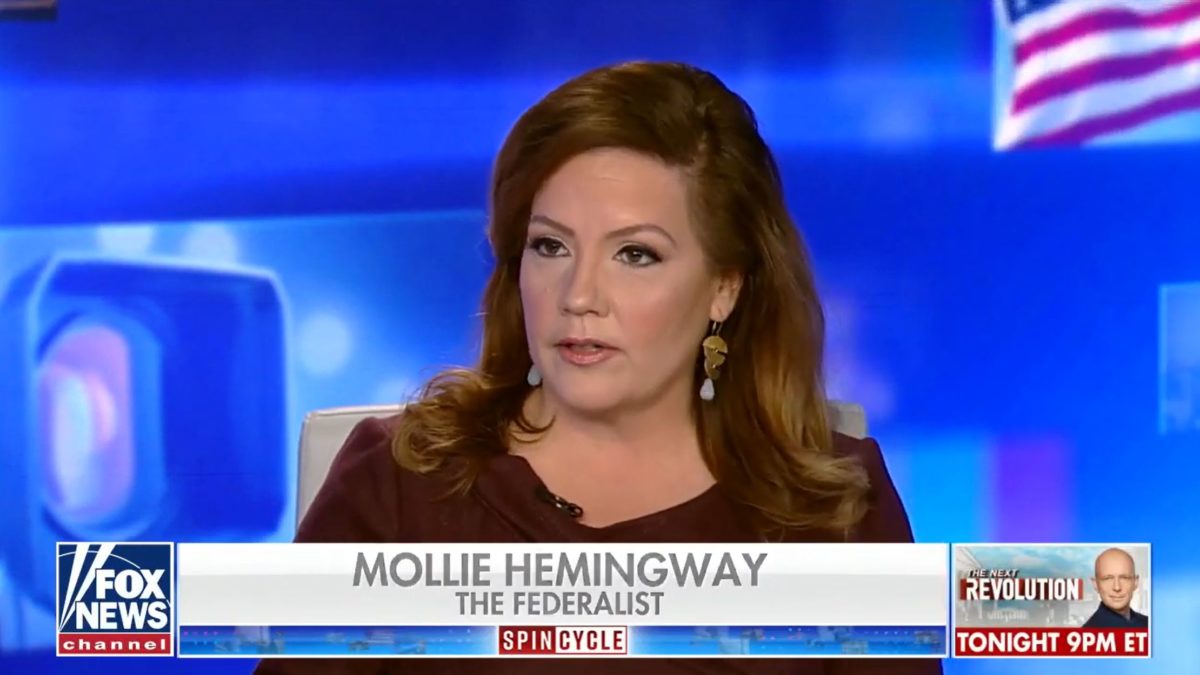
It’s that most wonderful time of year, when “best of” lists and awards recognize everything notable and laudable from the past twelve months. Few of 2013’s selections were less suspenseful than Politifact’s “Lie of the Year,” awarded to President Obama for the whopper meant to cover the statement that should have won in 2009: “If you like your health care plan, you can keep your health care plan.” Not so, claimed the President: “What we said was you could keep it if it hasn’t changed since the law’s passing . . . ”
It’s been a bad year for presidential credibility–and, from the IRS to the NSA, a worse year for our republic. In fact, it’s been a pretty rough century.
The Progressive movement came of age in America one hundred years ago, with the presidential inauguration of Woodrow Wilson and the passage of the 1913 Revenue Act, which established the modern federal income tax. That year, federal spending was approximately 2.5 percent of the national economy. It rose as high as 24 percent during World War I, but President Coolidge brought it back under 4 percent by the end of the 1920s. Then came Hoover, who doubled spending in a single term, followed by Roosevelt’s New Deal and a new peacetime normal around 10 percent. After World War II, the rate settled down again–but only to about 15%. In the 60s, it crept up to 18 percent, then climbed above 20% in 1975 and stayed there (with one exception) until 1996. In 2008, we passed 20 percent again, followed by the three highest spending years (non-World War I/II) in American history.
Normal today appears to be somewhere around 22 percent –or about what the U.S. spent during the first year (for us) of World War II. But consider this: in 1942, military spending accounted for all but 5 percent of federal spending; today non-military spending accounts for all but 5 percent of the budget. Progressivism has entirely recast the purpose of the federal government from defending the American people to succoring them.
This does not just represent a shift in priorities; it has created a new relationship between the governors and the governed. The federal government that once served its popular master now pets its increasingly-docile children–and those who resist have fewer and fewer opportunities to make any meaningful change to this trajectory.
Last week’s budget deal highlights the problem. Representative Paul Ryan and Senator Patty Murray essentially split the difference between Republican and Democratic spending proposals, agreeing to just over $1 trillion in “discretionary” spending for the current fiscal year. If Calvin Coolidge were president, one trillion of today’s dollars might cover the whole budget with a good bit left over. But today it accounts for less than 30 percent, the rest of which ($2.5 trillion) is labeled non-discretionary (entitlements, etc.). This is runaway spending on autopilot.
Moreover, the original Republican and Democratic discretionary spending plans were just $91 billion apart. What’s on the ballot, then, in the 2014 mid-term elections? About 3% of federal spending.
What about other areas of policy? The Supreme Court governs the leading social issues; bureaucratic ukase daily rewrite Obamacare, environmental legislation, and the like; the wheels of political responsibility grind slowly to a halt. One can maintain all the forms of self-government and lose almost its entire substance.
Federalist 22 concludes a series of essays outlining the failures of the Articles of Confederation by showing how the government charter undermines self-government. Alexander Hamilton’s argument is remarkable, since the Constitution is at least partially guilty of several of his charges. Hamilton, in other words, has either forgotten what’s in the document he’s defending–or has chosen to outline a theory of self-government that Americans might, for all time, use to measure and reform their political practice and institutions.
He begins this discussion by objecting to the equal vote given to each state in the Congress formed by the Articles: “Its operation contradicts the fundamental maxim of republican government, which requires that the sense of the majority should prevail.” Under this rule, seven states, representing less than a third of the American population, could approve laws binding on the rest. Even for matters requiring two-thirds approval under the Articles, the nine smallest states of the Union could outvote the other four, despite representing less than half the nation’s population.
Is the answer increasing the supermajority of states necessary to approve a law? No, because then the minority could rule in a different way: by refusing to support important measures until its factious desires were satisfied. These were not merely hypothetical concerns. More than once under the Articles, the absence of several state delegations from the Congress had meant that the single negative vote of Delaware or Rhode Island, representing individually about 1/60th of the American population, had defeated measures advocated by the rest.
The fix, then, seems obvious: amend the Articles, providing for proportional, rather than equal, state representation in the Congress. But, Hamilton argues, this won’t work either–at least if the states give that Congress the powers necessary to do its job. The single legislative assembly formed by the Articles, fortified with additional power and unchecked by an independent judiciary, executive branch, or second legislative body, would be “one of the most execrable forms of governments that human infatuation ever contrived. Thus, we should create in reality that very tyranny which the adversaries of the new Constitution are, or affect to be, solicitous to avert.” The majority should rule, in other words, but not without the restraints that help ensure it governs on behalf of all, rather than for its own factious interest.
Hamilton’s last point in the essay is the most fundamental: that the people of the states, not the governments of the states (as with the Articles), must consent to their form of government–that “the streams of national power ought to flow immediately from that pure, original fountain of all legitimate authority.”
What, then, is the sum of his teaching? That the people have the right to frame their government and direct its leaders, but if it is unjust for the minority to rule the majority for their own benefit, the reverse is equally so.
Thomas Jefferson, the first Democratic Party president, distilled this point in his First Inaugural Address: “though the will of the majority is in all cases to prevail, that will to be rightful must be reasonable; . . . the minority possess their equal rights, which equal law must protect, and to violate would be oppression.”
Abraham Lincoln, the first Republican Party president, did the same in his First Inaugural: “A majority held in restraint by constitutional checks and limitations, and always changing easily with deliberate changes of popular opinions and sentiments, is the only true sovereign of a free people.”
What of the American republic of, by, and for the people today?
Today, a government of the people begins and ends on election day. Thereafter, every special interest deal, parliamentary trick, and constitutional sophism is used to ram its policies (Obamacare) through Congress. Progressive policy shipwrecks are “the law of the land” when the opinion of the citizenry moves in the other direction (except, of course, the parts that can be waived, rewritten, or postponed).
By the people? The members of today’s bipartisan ruling class work hard to keep their most cherished programs and policies off the ballot, their efforts secret from the people (IRS, NSA, and now HHS), and reelection challenges off limits to the people (congressional campaign committees and campaign finance “reform” that discourages competition and undermines accountability).
And for the people? Consider Obamacare. It is now painfully obvious that no one will be able to keep their private health insurance plan, like it or not. In fact, it is increasingly difficult to say that there is any such thing as a private health insurance plan. Hence it represents simply the latest government program, in Tocqueville’s language, that “every day renders the exercise of the free agency of man less useful and less frequent; it circumscribes the will within a narrower range and gradually robs a man of all the uses of himself.”
A century of Progressivism has made it difficult for the American people to act–but it is not yet impossible. You can still keep your republic . . . if you like it.
But you’d better enroll soon.
David Corbin is a Professor of Politics and Matthew Parks an Assistant Professor of Politics at The King’s College, New York City. They are co-authors of “Keeping Our Republic: Principles for a Political Reformation” (2011). You can follow their work on Twitter orFacebook.









